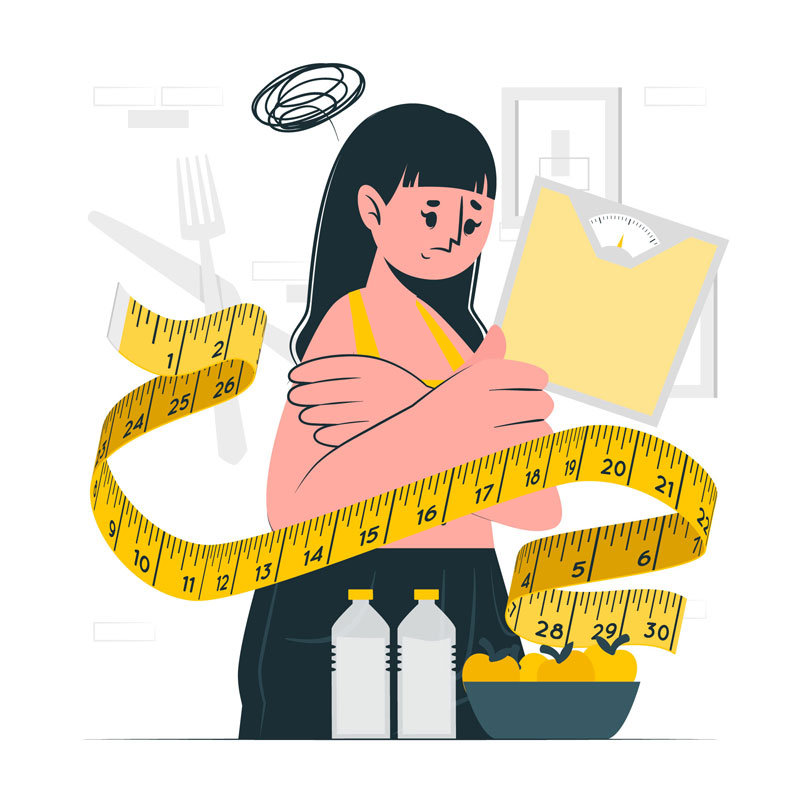By Athena Trifonia Rueda-Tiglao, RND, MAEd
One of my favorite topics on weight management for discussion is Eating Disorders Due to Psychological Problems. Let me share my insights on three types of these eating disorders.
The issues may have started during puberty when one undergoes body changes. Some have good body shapes while others do not due to various physiological factors.

As we age, we become more conscious of our looks and physique. Peer pressure is one of the most common reasons to strive for a better appearance. Several have just gone through relationship break-ups, matrimonial divorces, or even the death of their loved ones. These conditions are experienced as we mature, leading to anxiety and depression. The hypothalamus, which controls the hormones, becomes greatly affected.
This results in the following eating disorders:
1. Anorexia
This is characterized by having a severe fear of gaining weight. It is the condition where one thinks they are gaining poundage despite being underweight. They believe that gaining even just to attain their ideal body would make them look ugly. Their obsession to remain thin resorts to fasting, excessive workouts, and taking laxatives or diuretics. Their mindset tells them that “slim is in”.

2. Bulimia Nervosa
Believe it or not, you may not distinguish the looks of the one having this disorder. They look like anyone with just a regular physique. Similar to anorexia, they also have the fear of gaining weight but because of their uncontrollable appetite, they will definitely give in to their cravings. But on one condition: they have to get rid of those calories through forced vomiting, purging, and excessive exercise.
3. Binge-eating Disorder
A lot of people unconsciously do this whenever they eat. They have the mentality not to eat in bulk because it will make them gain weight. Instead, they will just eat finger foods or small snacks as often as they like anytime and anywhere – while watching TV, doing their homework, or just merely chatting with their friends.

All three disorders call for diet counseling and psychotherapy. Medical and nutritional treatment might be of great help, too.
But the best would be to extend a caring heart which will make them feel they belong and are loved. Serve them with appetizing meals that will brighten up their days. Be a support system that shares about having a positive perception in life.
A variety of healthy food choices will certainly nourish their brains with hearty meals and beautiful thoughts. Remember the saying: You are what you eat. Stay fit and healthy.
Athena Trifonia Rueda-Tiglao is a registered nutritionist-dietitian. She is a culinary nutritionist and associate professor in the School of Hotel, Restaurant, and Institution Management (SHRIM) of the De La Salle- College of Saint Benilde Manila (DLS-CSB). She specialized in the Weight Management Program in Slimmers’ World International as a Nutrition Consultant and has worked at Mead Johnson Philippines as a Nutrition Specialist. She likewise served as a board member of the Philippine Society of Nutritionists-Dietitians.





